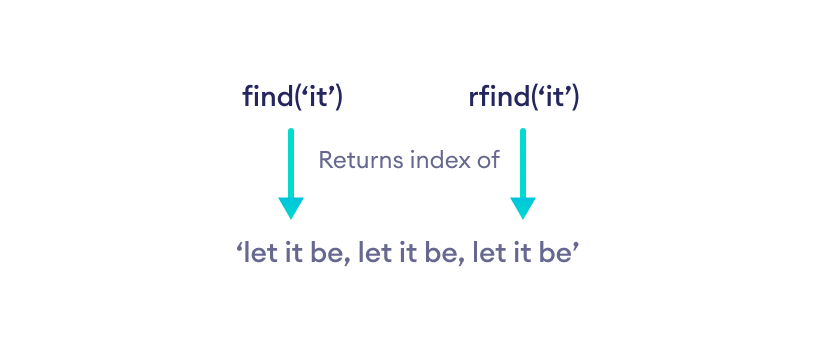The syntax of rfind() is:
str.rfind(sub[, start[, end]] )
rfind() Parameters
rfind() method takes a maximum of three parameters:
- sub - It's the substring to be searched in the str string.
- start and end (optional) - substring is searched within
str[start:end]
Return Value from rfind()
rfind() method returns an integer value.
- If substring exists inside the string, it returns the highest index where substring is found.
- If substring doesn't exist inside the string, it returns -1.

Example 1: rfind() With No start and end Argument
quote = 'Let it be, let it be, let it be'
result = quote.rfind('let it')
print("Substring 'let it':", result)
result = quote.rfind('small')
print("Substring 'small ':", result)
result = quote.rfind('be,')
if (result != -1):
print("Highest index where 'be,' occurs:", result)
else:
print("Doesn't contain substring")
Output
Substring 'let it': 22 Substring 'small ': -1 Highest index where 'be,' occurs: 18
Example 2: rfind() With start and end Arguments
quote = 'Do small things with great love'
# Substring is searched in 'hings with great love'
print(quote.rfind('things', 10))
# Substring is searched in ' small things with great love'
print(quote.rfind('t', 2))
# Substring is searched in 'hings with great lov'
print(quote.rfind('o small ', 10, -1))
# Substring is searched in 'll things with'
print(quote.rfind('th', 6, 20))
Output
-1 25 -1 18
Also Read: